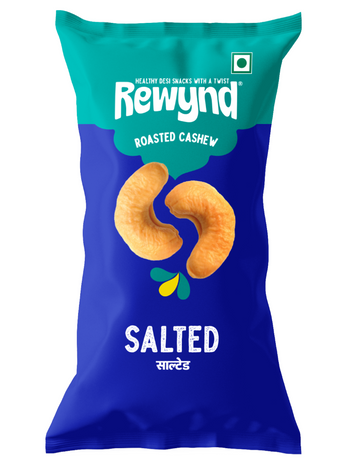Intermittent Fasting: A Simple Guide to Smarter Eating
Intermittent Fasting isn't just a diet trend — Research suggests it's a lifestyle shift that's helped millions manage weight, boost energy, and simplify routines. Let's break down how it works, why it's effective, and how to do it safely.
What Is Intermittent Fasting?
Intermittent Fasting focuses on when you eat, not what you eat. It is an eating pattern alternating between fasting periods (when you don't eat) and eating windows (when you consume food).
It's not about starving yourself; it's about giving your body time to rest, repair, and burn fat effectively.
Historically, Fasting has been part of human evolution—early humans didn't always have access to food, and Fasting helped their bodies adapt. Even today, Fasting is a part of various cultures and religions, including Ramadan, Navratri, and Lent.
Why Intermittent Fasting Works: The Science Behind It
It’s backed by science. When you fast, your body shifts into fat-burning mode, lowering insulin levels and increasing human growth hormone (HGH), which helps break down stored fat for energy. It also triggers autophagy, where cells repair themselves by eliminating damaged components, promoting better metabolism and longevity. Studies suggest Intermittent Fasting can improve brain function, support heart health, and regulate blood sugar levels, making it more than just a weight-loss strategy—it’s a holistic approach to better health. (Source: National Institute on Aging)
How to Do Intermittent Fasting: Popular Methods
There are several ways to practice Intermittent Fasting—choose the one that fits your lifestyle.

Tip: If you're new to Fasting, start with the 16/8 method before trying longer fasts.
Intermittent Fasting Rules: What to Keep in Mind
To make the most of your fasting journey, follow these simple rules:
-
Stay Hydrated – Drink plenty of water, herbal tea, and black coffee (without sugar).
-
Break Your Fast Gently – Avoid heavy meals after fasting; start with nuts, fruits, or yoghurt.
-
No Binge Eating – Intermittent Fasting works when you eat nutritious meals during your eating window.
-
Choose Nutrient-Dense Foods – Prioritize proteins, fibre, and healthy fats for lasting energy.
-
Stay Consistent – The more regular your fasting pattern, the better the results.
Rewynd's Tip: Flavored peanuts and dry fruits are perfect for breaking your fast—they provide a nutrient boost without spiking blood sugar.
What to Eat During Intermittent Fasting
Your eating window is where you fuel your body the right way. Here's what you should include:
Best Foods for Intermittent Fasting
- Protein: Lentils, tofu, nuts, and seeds
- Fibre: Leafy greens, oats, and whole grains
- Healthy Fats: Nuts, coconut oil, olive oil
-
Hydrating Foods: Cucumber, watermelon, and coconut water
Foods to Avoid
- Sugary snacks (candies, sodas, processed cereals)
- Fried foods (deep-fried snacks, fast food)
- Refined carbs (white bread, pastries, junk food)

How Intermittent Fasting Affects Your Body
Intermittent Fasting triggers several changes in your body:
-
Increases Fat Burning – Fasting reduces insulin levels, making stored fat more accessible for energy.
-
Boosts Human Growth Hormone (HGH) – Helps with fat loss and muscle gain.
-
Cellular Repair & Detoxification – Supports autophagy, where cells remove damaged components.
-
Improves Insulin Sensitivity – Helps manage blood sugar levels, reducing the risk of diabetes.
Health Benefits of Intermittent Fasting
Intermittent Fasting is backed by research for its health advantages:
-
Weight Loss – Helps reduce body fat by regulating hormones.
-
Heart Health – Lowers cholesterol, blood pressure, and inflammation.
-
Brain Function – Increases BDNF, a protein that supports brain health.
-
Longevity – Fasting may promote longer life by improving cell function.

Did You Know? A study found that Intermittent Fasting can increase metabolism by up to 14% and help with weight loss without muscle loss. (Source: pmc.ncbi.nlm.nih.gov)
Who Should Avoid Intermittent Fasting?
Intermittent Fasting isn't for everyone. You should avoid it if:
- You have a history of eating disorders
- You're pregnant or breastfeeding
- You have Type 1 diabetes or take insulin
- You have low blood pressure or suffer from extreme fatigueIf you're unsure, consult a doctor before starting Intermittent Fasting.
FAQs About Intermittent Fasting
1. Can I drink water during intermittent Fasting?
Yes! Water, black coffee, herbal tea, and zero-calorie drinks are allowed. Hydration is key to preventing fatigue and headaches.
2. Does intermittent fasting work for weight loss?
Yes! Intermittent Fasting naturally reduces calorie intake and boosts fat-burning hormones, making it an effective weight-loss tool. However, healthy eating is still essential for results.
3. What can I eat during my eating window?
Focus on nutrient-dense foods like proteins, healthy fats, fibre-rich carbs, and hydrating fruits. Avoid processed foods and sugar-laden snacks.
4. Can I exercise while fasting?
Yes, but opt for light workouts like walking or yoga if you're new to Fasting. Strength training works well if done during your eating window.
5. How long does it take to see results with intermittent Fasting?
It varies per person, but most consistently see changes in 2-4 weeks. Weight loss, better digestion, and improved energy are common benefits.
Final Thoughts
Intermittent Fasting is a powerful tool for weight loss, metabolism, and overall health—when done right! Choosing the right fasting schedule, eating nutrient-rich foods, and staying hydrated can help you achieve the best results.























































